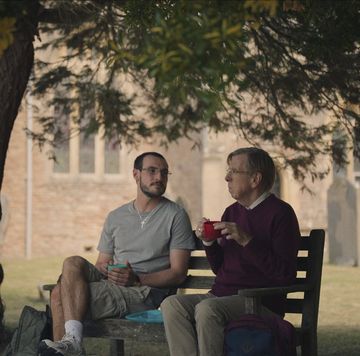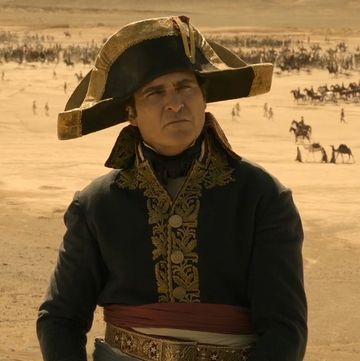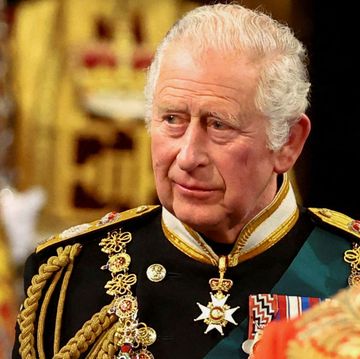Professor Stephen Hawking, the globally-renowned theoretical physicist and author of A Brief History of Time, has died. He was 76.
The scientist's children Lucy, Robert and Tim confirmed that he passed away peacefully at his home in Cambridge early on Wednesday morning (14 March).
"We are deeply saddened that our beloved father passed away today," they said. "He was a great scientist and an extraordinary man whose work and legacy will live on for many years.
"His courage and persistence with his brilliance and humour inspired people across the world.
"He once said, 'It would not be much of a universe if it wasn't home to the people you love.' We will miss him forever."
Tributes have been paid to Hawking from around the globe, with NASA, physicist Neil de Grasse Tyson and more sharing their memories of him and celebrating his life and numerous achievements.
"We have lost a colossal mind and a wonderful spirit. Rest in peace, Stephen Hawking," wrote Tim Berners-Lee, inventor of the World Wide Web.
"He inspired generations to look beyond our own blue planet and expand our understanding of the universe," added astronaut Major Tim Peake. "His personality and genius will be sorely missed. My thoughts are with his family."
Hawking studied natural science at Oxford University in the late 1950s, moving to Cambridge to study for his PhD.
But in 1963, then aged only 22, he was diagnosed with motor neurone disease (also known as amyotrophic lateral sclerosis, or ALS) and given just two years to live by his doctors.
In his later years, after he had lost movement in most of his body, he was able to continue communicating using a specially-designed speech-generating device.
"I felt it was very unfair – why should this happen to me," he said of his diagnosis in his 2013 memoir My Brief History.
"At the time, I thought my life was over and that I would never realise the potential I felt I had. But now, 50 years later, I can be quietly satisfied with my life."
Hawking passionately defended the NHS on many occasions, saying that he owes his life and achievements to them.
"When politicians and private healthcare industry lobbyists claim that we cannot afford the NHS, this is the exact inversion of the truth," he said in a speech at the Royal Society of Medicine in summer 2017. "We cannot afford not to have the NHS."
Hawking's achievements in theoretical physics were celebrated around the globe, and the majority of his research focused on black holes and quantum mechanics.
In 1970, he and Roger Penrose set out their findings after applying Einstein's general theory of relativity to the entire universe.
They concluded that space and time had its beginning in the Big Bang, and its ending would come in the form of black holes.
In 1974, he outlined his theory that black holes emit blackbody radiation, what would later become popularly referred to as "Hawking radiation" after his finding.
And in 1988, A Brief History of Time was first published, quickly selling 10 million copies. It was translated into over 30 languages, and spent over five years on the Sunday Times bestsellers list.
Hawking became a key part of popular culture through his work, appearing on TV shows from The Big Bang Theory to The Simpsons, lending his support to Comic Relief and stealing the show at the Pride of Britain awards with a topical joke or two.
In 2012, Hawking narrated a segment of the Summer Paralympics opening ceremony called 'Enlightenment', and experienced weightlessness in Zero Gravity Corporations' 'vomit comet' craft in 2007.
Last year, in a wide-ranging interview with Piers Morgan, he expressed an ambition to fly into space, revealing that Richard Branson had offered him a seat on a Virgin Galactic flight and of course, he "said yes immediately".
Hawking was played on screen by Benedict Cumberbatch in the 2004 BBC biopic Hawking, and later by Eddie Redmayne in his Oscar-winning portrayal for biopic The Theory of Everything.
"To tell a story as extraordinary as this and depict someone as charismatic, brilliant and funny as Stephen was totally the dream," Redmayne said in 2014 of being asked to portray a cultural icon.
And Hawking, too, was complimentary of Redmayne, joining him on the red carpet during awards season and congratulating him for his 2015 Oscars win, saying: "Well done, Eddie. I'm very proud of you."
In late 2017, Hawking made his doctoral thesis, Properties of Expanding Universes, available to the public for the first time.
"Anyone, anywhere in the world should have free, unhindered access to not just my research, but to the research of every great and enquiring mind across the spectrum of human understanding," he said at the time.
"I hope my work will inspire someone to pursue their own research, to seek the answer to one of the universe's many unanswered questions, as the works of Isaac Newton, James Clerk Maxwell, and Albert Einstein once inspired me.
"After so many requests over time from people wanting to read this thesis, I also hope it doesn't disappoint. If it does, please address any questions or complaints to my younger self. You will only have to invent time travel to do so."
Managing Editor, Digital Spy
Kate (they/she) joined Digital Spy in 2011 after studying journalism at Salford University, and has 15 years' experience as a writer and editor. They have previously worked at organisations including the BBC and Metro, and contributed to various music websites, blogs and zines while based in Manchester.
During her time at DS, Kate has previously been a freelance sub-editor and chief sub-editor. Kate's team were proudly nominated in the Best Subbing/Production Team category at the BSME Talent Awards 2022.














